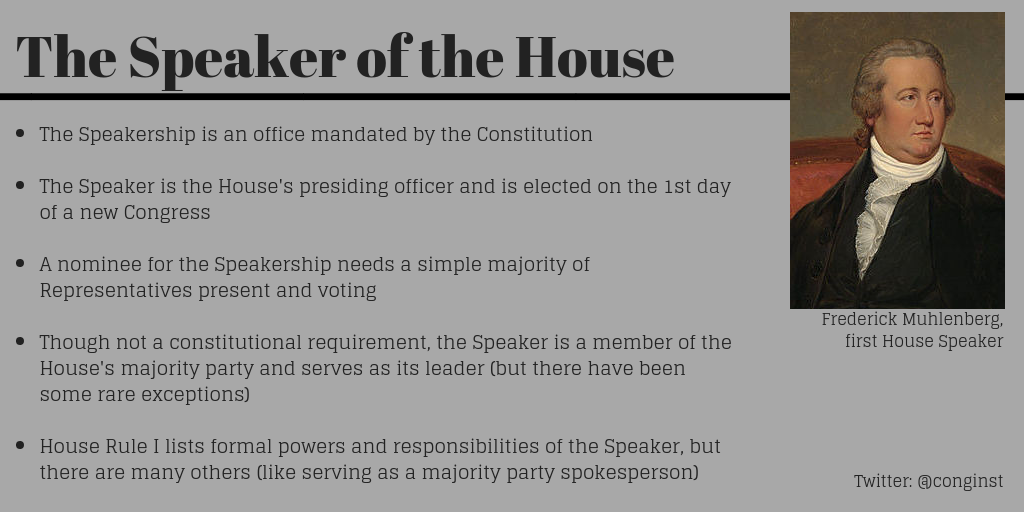Table Of Content
- Partisan role
- Second GOP lawmaker backs ousting House speaker, putting Johnson's job in peril
- California holds the key to GOP power in the House. McCarthy’s retirement makes everything harder
- Members were sworn into office on January 3, 2021
- Column: Kevin McCarthy wants vengeance. Now he’s free to pursue it

We’re seeing a little bit of that here, with his gracious words toward Jeffries, promising to work together and find common ground. Mr. Johnson immediately faces a host of challenges that dogged his predecessor, Mr. McCarthy. He is confronting a mid-November deadline to pass a measure to fund the government to avert a shutdown. And he will need to lead a conference deeply divided over foreign policy as Congress considers the Biden administration’s $105 billion funding request for Israel, Ukraine and the southern border. Mr. Roy, an initial holdout against Mr. McCarthy, led negotiations to try to bring about a deal that would make Mr. McCarthy the speaker in exchange for changes to House rules.
Partisan role
But what you hear from conservatives – at least in the minutes before and after Johnson won the speaker’s election – is they are willing to give some room for Johnson to maneuver in his new role. Historically, the magical number has been 218 out of the 435 members of the House. But many previous speakers, including outgoing Speaker Nancy Pelosi, have ascended to the dais with fewer votes than that, as some members voted present instead of calling out a name. Every lawmaker voting “present” lowers the overall tally needed to reach a majority. The chamber cannot organize until it has a speaker since that person effectively serves as the House’s presiding officer and the institution’s administrative head. The House can elect a new speaker at any time if the person occupying that role dies, resigns or is removed from office.
Second GOP lawmaker backs ousting House speaker, putting Johnson's job in peril

Boehner worked hard to fashion budget deals with both a Democratic President Barack Obama and a Democratic Senate. But his efforts alienated some in his own ranks who in 2015 formed an insurgent group known as the House Freedom Caucus. Increasingly exasperated with his untenable predicament, Boehner simply resigned in October of that year.
California holds the key to GOP power in the House. McCarthy’s retirement makes everything harder
Instead, he moved quickly to bring up a resolution expressing solidarity and support for Israel. His next order of business, he said, would be addressing what he called the country’s “broken border” with Mexico. He made no mention of the impeachment inquiry into President Biden, or of the impending government shutdown that will begin next month if Congress fails to pass legislation to keep the government funded.
Mr. Emmer’s downfall followed a swift backlash from the right, including former President Donald J. Trump, that left his candidacy in shambles and the G.O.P. as divided as ever. The views are sharply at odds with those of most Americans, according to opinion polls that have found the public is broadly supportive of gay rights. Mr. Johnson’s abrupt rise to the speaker post this week in the depressed and divided House Republican conference underscores the rightward lurch of the G.O.P., which dumped his more mainstream predecessor, Representative Kevin McCarthy of California. Mr. Johnson said Mr. Jordan called him when he was running for office, because “he knew I was a conservative,” contributed money to his campaign and invited him to Washington for a meeting with him and other Freedom Caucus members. Johnson says that he will bring to the floor “in just a little while” a resolution in support of Israel. “We’re going to show not only Israel but the entire world that the barbarism of Hamas" is "wretched and wrong,” he said.
House expected to vote on resolution in support of Israel Wednesday afternoon
Almost immediately after Mr. Johnson was elected, lawmakers began debating a resolution expressing solidarity with Israel and condemning Hamas, which passed overwhelmingly. The elevation of Mr. Johnson, 51, an architect of the effort to overturn the 2020 election and a religious conservative opposed to abortion rights, homosexuality and gay marriage, further cemented the Republican Party’s lurch to the right. It came after a historic fight that began when the hard right ousted Speaker Kevin McCarthy on Oct. 3, and raged on as the divided House G.O.P. nominated and then quickly discarded three other candidates to succeed him. “He will have to live the entirety of his speakership in a straitjacket constructed by the rules that we’re working on now,” Mr. Gaetz said. Talking with reporters, he gamely brushed off the notion that his historic and humiliating slog to election — the most protracted such contest since 1859 — foretold any troubles ahead for him in governing with an unruly and narrow majority.
House Majority Whip Tom Emmer and Conference Chair Elise Stefanik have been working behind the scenes to help Jordan flip votes this afternoon, multiple sources familiar tells CNN. But Majority Leader Steve Scalise has decided not to get actively involved – illustrating how the current top Republican leaders are taking different approaches to the speakership drama, with emotions still raw inside the conference. Ohio Rep. Jim Jordan's loss on his first ballot for House speaker Tuesday and his effort to win the gavel despite facing 20 holdouts from within his party, has begun to expose cracks forming within the leadership of the House GOP. The Senate and the White House are still controlled by Democrats and any spending bill passed will need Democratic support to become law and avert a shutdown.

Office of Congressional Ethics
It is important to note that the period between the adjournment of one Congress and the convening of the next Congress is not included in the calculations. For instance, Nathaniel Macon served as speaker during both the 8th and 9th Congresses, but the eight-month gap between the two Congresses is not included in his service duration. The exact dates of service for each individual speaker is shown in the Term of service column of the above table. One of the most influential speakers in history was Democrat Sam Rayburn.[48] Rayburn had the most cumulative time as speaker in history, holding office from 1940 to 1947, 1949 to 1953, and 1955 to 1961. He helped shape many bills, working quietly in the background with House committees.
A bloc of Republicans had objected to the speaker bid of Representative Jim Jordan of Ohio, the hard-right co-founder of the Freedom Caucus, because of his role in helping lead Mr. Trump’s efforts to overturn the election. In the end, it was Mr. Johnson who was able to bring together both the party’s hard-right and mainstream flanks that had taken turns sinking speaker candidates. But the unity was in part a product of burnout among House Republicans, who in spite of their differences grew eager to put an end to the weekslong spectacle of mass dysfunction and paralysis that many said had left their constituents distraught.
He was the first candidate since McCarthy's ouster to face no opposition from his own party. Before the vote in the House, Johnson said he had not spoken to the president, but said he assumed he would soon. Asked if he was worried Johnson might attempt to overturn the results of the 2024 election, Mr. Biden said he wasn't. The Democratic leader also vowed that his party will continue to support Ukraine to defeat Russia's aggression.
I'm Not Over the “Moon” for a Speaker Jordan - Idaho Deserves Better - Mike Simpson
I'm Not Over the “Moon” for a Speaker Jordan - Idaho Deserves Better.
Posted: Fri, 20 Oct 2023 07:00:00 GMT [source]
Asked if he would bring a vote to oust Johnson if he put forth a short-term spending bill at current spending levels, Rep. Matt Gaetz said he’s optimistic Johnson will be able to actually pass the individual spending bills. But once Jan. 3 comes along, members are not obligated to vote for the party’s chosen candidate. While it has been the tradition for the speaker candidate to be a member of the House, it is not required. In past years, President Biden, former President Trump and even a senator, Republican Rand Paul of Kentucky, have received votes for House speaker. Lawmakers call out the name of their choice for speaker from the floor, a rare and time-consuming roll call that heightens the drama.

No comments:
Post a Comment